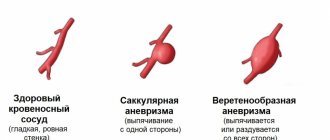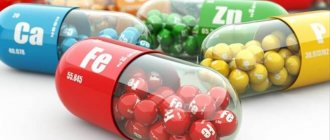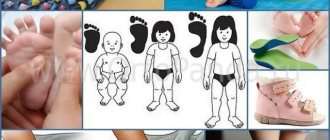The feeling of inner cold becomes a familiar part of life for many older people. The image of old women is often associated with scarves and warm socks. But why does this happen?
“This can be explained by several reasons. Thermoregulation - the ability to maintain body temperature in a certain range - is provided by various mechanisms, which begin to weaken over the years,” says geriatrician Natalya Sharashkina .
Also, the specialist notes, in older people, with age, the skin becomes thinner, the functioning of blood vessels decreases, and the amount of hair is reduced, so it becomes increasingly difficult for the elderly body to respond to temperature changes. There is also a decrease in adipose tissue, especially brown fat. Its lack slows down the process of warming and retaining heat in the body, says Natalya Sharashkina.
“Another important factor is sarcopenia, or loss of muscle mass. With a decrease in muscle volume in the body, the ability to quickly respond to cold ambient temperatures is lost, and all processes slow down, including metabolism,” warns the specialist.
In addition, some chronic diseases common to older adults have a profound effect on the ability to stay warm. For example, with atherosclerosis, hypertension, diabetes mellitus, anemia, thyroid dysfunction, as well as a number of other diseases, feelings of cold and chilliness can occur much more often. In such cases, you need to consult a doctor to make an appropriate diagnosis and begin the correct treatment, says the geriatrician.
Hormone deficiency: how replacement therapy delays the onset of old age Read more
Hormonal problems
Hormones produced by the thyroid gland are responsible for thermoregulation. If their level is reduced, a person feels chilly even in the heat. With advanced hypothyroidism (decreased thyroid function), body temperature can drop to 35 degrees.
Other signs of hypothyroidism include frequent infections (hormones are also responsible for maintaining immunity), dry skin, brittle hair, frequent constipation and constant drowsiness.
The cause of all illnesses. How to check your thyroid function? More details
To confirm (or refute) the diagnosis, you need to take a thyroid hormone test.
Why do some people feel cold even in summer?
The feeling of coldness in the hands and feet in warm weather seems like a trifle only to those who do not know such problems. But there are many people who feel cold in the heat, as if in a bitter cold. And it’s not always possible to figure out why this happens. At the same time, it was noticed that there are more freezing people among women than among men
It is still possible to find an explanation for this feature, says Doctor of Medical Sciences, Professor Nikolai Soroka:
“Women have less muscle mass, and muscles are known to produce energy that warms the body from the inside. In addition, nature has programmed the fairer sex to give birth to a child, and the temperature of the reproductive organs of the expectant mother should always be constant, so the blood supply to the extremities reflexively decreases first. In men, this mechanism is absent.
Another reason. Women are more emotional, and under stress, as is known, vasospasm occurs due to the release of adrenaline, blood flow is disrupted, and as a result, legs and arms become “icy.”
Extremities get cold for other reasons. In particular, many young people do not have a clear balance between the work of the sympathetic and parasympathetic nervous systems, which regulate vascular tone and the functioning of internal organs. And an increase in the release of adrenaline leads to vasospasm, which can cause cold hands and feet. But there is good news: by the age of 40, the annoying chilliness still ceases to bother you, because by this age the work of the autonomic nervous system is already stable.
If a person has low blood pressure, then blood, figuratively speaking, flows slowly through the vessels, blood flow suffers, primarily in the extremities, on the periphery. And when the pressure is high, vasospasm occurs, which is bad because blood flow also suffers. In both situations, the manifestations will be the same: both with hypotension and with hypertension, a person’s hands and feet freeze.
It would seem that what could anemia and freezing hands and feet have in common? However, with a lack of iron, there is little hemoglobin, which means that little oxygen enters the vessels, so a person is often bothered by cold and chilly extremities.
Another reason is that the legs and arms cannot warm up due to the presence of parasites in the gastrointestinal tract. Worms produce toxins to which the blood vessels react. Therefore, we need to get rid of the parasites, and the warmth will return.
By the way, the thyroid gland can also make you feel cold if its function is reduced, which happens with hypothyroidism. Then all processes in the body slow down, fatigue and a feeling of cold appear, and the release of energy decreases. So if you have cold hands and feet, it won’t hurt to take a blood test for thyroid hormones. And what’s interesting: if you had diathesis in childhood, internal cold is also unlikely to be avoided.
Even medications can cause chilliness, for example beta-blockers - anaprilin or atenolol, which provoke spasm of peripheral blood vessels, and the person may suffer from cold inside.
And if someone took antibiotics while sick, they may develop candidiasis, or an overgrowth of fungi in the body. This will also lead to “cooling”. There is only one way out: to forget about icy hands and feet, you should treat candida.
Even smoking is a kind of provocateur of cold inside. Nicotine causes vasospasm. For this reason, young people with vegetative-vascular dysfunction also have cold hands and feet.
And, of course, people who have frozen limbs will feel cold. The consequences of severe hypothermia last a lifetime. In the cold, the vessels in the limbs contract so that as much blood as possible flows to the internal organs. In this way, the body protects itself from hypothermia and maintains normal body temperature. This is why in the cold our extremities are the first to freeze. A healthy person at a temperature of minus 15-17 degrees usually feels cheerful and fresh, but someone who once “didn’t make friends” with frost always suffers in the cold. In this case, the limbs are either bluish or red.
Is there salvation if the feeling of chilliness does not leave even in the heat?
Professor Nikolai Soroka emphasizes that there are no medicines that would give a person the desired warmth. For example, the well-known vasodilator drug nifedipine, which makes the face burn due to a sharp expansion of blood vessels, should not be used by freezing people, because they already have low blood pressure, which after taking the medicine may drop even more. Such people simply need to direct their efforts to find the problem, advises Professor Soroka. An experienced therapist or rheumatologist will help determine it. HOW TO HELP YOURSELF
- Quit smoking. — When it’s just cool outside, don’t hesitate to wear a hat and gloves. — To avoid getting cold, wear socks at home. If the vessels are in spasm all the time, they need to be relaxed, otherwise it will not be possible to quickly get rid of the chilliness of the limbs. - Avoid stress. - Do not overuse coffee and strong tea - it negatively affects blood flow. - Drink soothing teas with mint, valerian, lemon balm or motherwort, which generally do not lower blood pressure. — Use hot spices and seasonings in your dishes: black and red pepper, mustard, which help dilate blood vessels. — Move more, go to the sauna. Only after this you can’t freeze! — If your feet are constantly cold, you can steam them for 15 minutes in the evening at a comfortable temperature (37-38 degrees) and put on socks. For a basin of water - 2 tbsp. l. mustard. This procedure will help you warm up and fall asleep faster. — Sleep lasting 8-9 hours relaxes blood vessels.
Low pressure
Low blood pressure has one serious advantage - it reduces the risk of heart attacks and strokes. Otherwise, the health of hypotensive patients leaves much to be desired. Throughout life they are accompanied by lethargy, drowsiness and chilliness.
Article on the topic
Tied to the mercury column. How does blood pressure affect life expectancy? With low blood pressure, blood circulates more slowly, which reduces vascular tone and causes a feeling of chilliness.
The best way to stay warm when you have low blood pressure is to exercise. Physical activity increases blood circulation, so it warms you up instantly. If you are too lazy to move, strong hot tea will help you warm up.
Poor circulation
Blood circulates poorly throughout the body, and a person cannot warm up in any way, while the body temperature remains within normal limits. Accordingly, he is constantly freezing.
What to do? Train your blood vessels. Hardening helps very well: contrast showers, walks in winter. It is also recommended to drink at least 2 liters of fluid per day, as poor blood circulation is often the result of dehydration. Eat foods that improve blood circulation: black pepper, ginger, fish. And it wouldn't hurt to see a doctor.
Vascular problems
The feeling of cold is guaranteed to cause vasospasm. This problem, in addition to heavy smokers and patients with atherosclerosis, annoys people suffering from Raynaud's syndrome (spasm of the blood vessels in the hands in response to cold or emotional stress, which, in addition to discomfort, causes a change in skin color in the fingers). According to statistics, 3-5% of the population suffers from Raynaud's syndrome.
Relaxation methods (meditation, auto-training, sessions with a psychotherapist) help combat this condition.
There will be no catastrophe. How to protect yourself from a stroke? More details
Anemia
Hemoglobin is responsible for the delivery of oxygen to organs and tissues. If its level in the blood is reduced, oxygen deficiency (hypoxia) may occur, which is manifested by weakness, headaches, pallor, dizziness and a feeling of chilliness.
The main reasons for low hemoglobin are poor nutrition (low-calorie diets that include avoiding animal fats and proteins), as well as blood loss (prolonged heavy menstruation, diseases of the gastrointestinal tract, bleeding gums, etc.).
According to statistics, anemia is detected in 10-20% of the population (mainly in women).
Article on the topic
Two sides of vegetarianism. How does giving up animal foods affect your health? The easiest way to get rid of it is to become a meat eater. Plant foods also contain enough iron. But only divalent iron, which is present in meat products, is absorbed from food. And trivalent iron, which is found in plant foods, must first be converted into divalent iron. But this process does not always go smoothly for everyone. With low stomach acidity, for example, iron from plant foods is not retained in the body at all.
Therefore, it is better to lean on red meat, pork liver, cheese and lamb. These products will provide your body with the necessary level of iron (15 mg per day). It is also important to eat meat correctly - along with foods rich in vitamin C (fresh vegetables, fruits, herbs), which increases the absorption of iron.
Lack of vitamins A and E
Vitamin A is responsible for normal metabolism in the body, and also supports the functioning of the nervous and cardiovascular systems. Vitamin E is actively involved in cell nutrition and strengthening the walls of blood vessels. They must be taken together, since vitamin E prevents the destruction of vitamin A. This is such friendship. An imbalance of these substances can affect the proper functioning of the liver, which plays an important role in “warming up” the blood.
What to do? Get vitamins A and E with food! A - liver, yolk, milk, bell pepper, apricots, parsley, dill, prunes. E - olive oil, tomatoes, lettuce, milk, parsley, meat, seeds, nuts.
Infectious diseases
An increase in body temperature is always accompanied by chills. This is explained by the fact that the components of infectious pathogens (pyrogens) affect the thermoregulation center and increase body temperature.
Some infectious diseases can occur in a sluggish form, and their only symptom is constant chills.
Lose weight correctly. Modern methods of fighting fat Read more
Little physical activity
Another reason why a person freezes. We sit a lot: at work, in the car, at home on the couch. A sedentary lifestyle is one of the main causes of all our health problems, including constant freezing.
What to do? Exercise - here are 7 reasons to go to exercise right now! Very soon you will notice positive changes.










